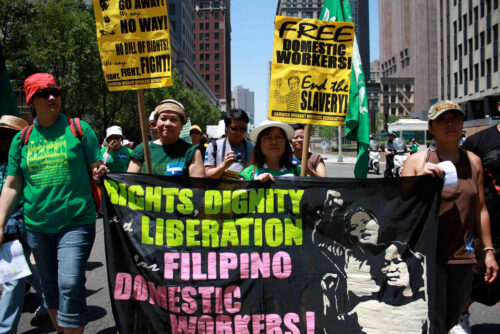Attachment Between Mothers and Their Children
In this issue, contributors pay special attention to the love children have for the parents from whom they have been separated by prison, and also to the challenging circumstances of reentry into the community parents have after incarceration. Although my interviews were only with mothers, my findings about children’s love for those mothers were consistent with the rest of the literature. Many of the respondents spoke about their children’s expressions of love for them, and in particular about the unconditional nature of their children’s love:
Susan: Because he’s my little husband! He’s like, he, it’s like, if I go somewhere, right, if I’m not there to pick him up at the bus, he’ll be like, ‘mommy, where was you? I miss you. You wasn’t there for me.’ And sometimes he would, like, have the teachers call me, just to tell me he loves me, and you know, that’s why he’s so special to me.
Likewise, respondents’ love for and pride in their children was one of the most common themes of the interviews: they glowed about their children’s college educations, jobs, and marriages, as well as their grandchildren:
Kristina: I see [my daughter] every day. Every day at the school. She’s in school, she’s doing good, she go to church, you know, she’s an A [student], you know, she’s a gifted child, you know, as I said, ’cause she’s very smart, she plays the organ, you know, so, my aunt and my sister and them try to keep her, you know, busy, you know, when she come home she go to the library, you see, work on computers, you know, do her homework, she’s a very smart child and I love her for that.
Specifically, respondents talked about their love in the context of their reunification, or for those who had not yet reunified, they spoke of their hopes for reunification:
Patty: [Reunification] is like, I win the lotto! That’s a different feeling. Because the man made me happy, but when I got, when the judge said, Miss [Patty], where the kids at? I said, they’re home. He said, ok, go get them. I jumped up, because I have thyroid, I’m overweight, I was bigger than this. I couldn’t move, you know, as freely as I want. But when the judge tell me that, I jumped, and put my forearm in the air, you’d think I was insane.
Other respondents spoke about their loss of parental rights. For these respondents, it was clear that the legal imposition of a termination (or imminent termination) only put their love into sharper, more painful relief:
Ada: knowing that I lost two, my other kids, it’s just, you know, it was pain, and I was really killing myself little by little, allowing that pain to really put me down, down to the point that I didn’t care about life. I was, I didn’t care, what you do to me, it didn’t bother me to hurt me, nothing, nothing. I felt that nothing or no one could make me feel pain for what I felt when I lost them.
In the initial stages, quantitative analysis, which showed that reunification with children and desistance were unrelated, seemed to be in direct contrast with the results of the qualitative findings, seemingly disproving the chief hypothesis of the study. Further analysis, however, uncovered a statistically significant positive relationship between mothers’ desistance behavior and the amount of time that they spent with their children: the more time women spent with their children in an average week, the less criminal behavior they reported.
In further support of this notion of the importance of time, rather than the more specific concept of reunification, a number of themes emerged to indicate that reunification, in fact, was often avoided because of respondents’ attachment to their children. In fact, almost a third of respondents said that they thought their children might be better off not living with them. For some respondents, it was a more general concern for relationship stability, as many children had been with their caretakers for many years. Respondents sometimes even thought that the relationship between the child and the caretaker was better than the relationship between the respondent and the child:
Inez: I just don’t want to undo all the good my mother has done. That’s the basic thing. She’s raising her . . . she’s a good little girl, and sometimes I sit in that shelter when all the other girls are sleeping, and cry, because I say to myself, would she have turned out to be such a good kid had I had her?
The majority of these respondents, however, reasoned that their children should stay with others because of practical concerns, such as unstable housing, disruption in schooling, or respondent’s substance abuse or health problems. This often translated into a discussion of why it is important for the respondent to focus on her own needs before working towards reunification:
Margaret: At the time, I had a substance abuse issue and I was going in and out of jail, in and out of jail so I just felt that it was best they stay with my family . . .. I would like for my kids to come back and live with me, but however right now with me like going back and forth with my issues . . .. I was working, then I got another job, I got fired, but then I wound up resigning and then I’m getting used to the idea like that my kids are with my sister, so it’s like—I don’t know . . .. I have to wait until I successfully get into a great job and I know that it’s all year round and that I’m not going to have no issues as far as them pulling me out of work, and I know I feel my kids will have safe surroundings for them so I can be able to take care of them successfully. ‘Cause right now I’m struggling to take care of myself.
These concerns spanned many different areas of respondents’ lives—for most women who are released into the community after incarceration, their needs are myriad, from housing and livelihood, to family reunification and complying with parole mandates. Housing was a primary concern, which was consistent with national numbers indicating that many incarcerated women (15%) nationally report homelessness in the year before their arrest (Federal Bureau of Prisons, 2000, cited Women’s Prison Association, 2003). Many formerly incarcerated people rely on emergency shelters; as much as a quarter of shelter residents in New York City reported incarceration in the past two years (Metraux & Culhane, 2006). Incarceration histories create obstacles to obtaining housing, and homelessness and unstable housing situations, in turn, affect women’s ability to get jobs, reunite with their families, and secure benefits. Respondents spoke about the importance of having “a place”:
Frances: I still get depressed a lot, because, you know, I don’t have my own place, but in time I know it’s gonna come. I just have to keep doing the things that I’m doing to make myself better.
In addition to housing issues, homeless people often struggle with substance abuse, among other health-related issues (Skinner, 2005). Some of the women interviewed for this study connected their drug use with their loss of housing, while others talked about lack of income affecting their ability to pay rent:
Lisa: I lost my apartment. Yes, [my children] were going to school and I was working, but then my back went out. I have a deteriorating disc disease, and diabetic neuropathy, so I have nerve damage on my right side, so I couldn’t work no more.
In order to maintain housing, one woman spoke about remaining in an undesirable romantic relationship. Another woman, living in a shelter she hated for its conditions and its reminder of past traumatic experiences, talked about her desperation to find housing as potentially leading her to future illegal behavior.



